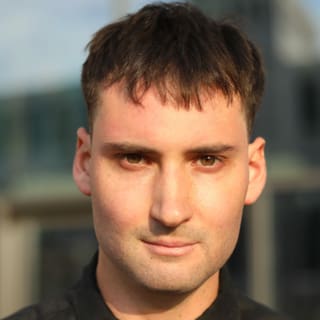The presidential election in Russia ends after three days. A sixth term in office for long-time ruler Vladimir Putin appears to be secured. Nevertheless, the opposition has emerged. On the last day of the election, there were protests against the Kremlin boss in European cities and in Russia itself under the slogan “Lunch against Putin”. Assessments by SRF correspondent Calum MacKenzie.
Was the “Lunch against Putin” campaign noticeable throughout Russia?
People took part in this campaign in all major cities in Russia. There were also longer queues in cities abroad, especially in those with a high presence of Russian exiles. In Yerevan, Armenia, there was a very long line of people in front of the Russian embassy, and in Berlin it was also considerable.
It is difficult to estimate exactly how many people took part in this campaign – probably several thousand in total. There were certainly at least a few dozen people at the Russian polling stations per event. At one Moscow polling station I visited, I would estimate the total number to be around 150 people. There have also been over 75 arrests across Russia – some just because people showed up at the polling station at 12 p.m. In the city of Kazan, police apparently told people to come back an hour later.
What effect did the campaign have?
The main aim of the campaign was for opposition members in Russia to be able to show each other that they are not alone, that they are not the only people who think differently. In this respect, the campaign seems to have been successful; many participants expressed their enthusiasm to me today, but there were also those who were disappointed and had hoped for more participants. Although, compared to the rest of election day at 12 p.m., it was actually quite busy and the contrast was very clear – there were not large crowds.
Before the election, the authorities had communicated, at least in Moscow, that participants in unauthorized gatherings would be arrested immediately. That may have put some people off. In addition, many people may have simply boycotted the elections completely. And finally, it has to be said that opposition members in Russia are simply a small minority, especially since many left after the start of the war.
Can we estimate whether this protest will be reflected in the election results?
The first results are expected at around 7 p.m. CET. The action will not change the fact that Vladimir Putin will celebrate a landslide victory. Putin enjoys broad support in Russia; even if many people are tired of war. Many state employees were encouraged or even forced to go to the polls and vote for Putin. And especially with the help of electronic voting machines, which were used in a presidential election for the first time this year, the authorities can correct the result almost at will; there are already precedents for this in local elections.
It will be interesting to see whether the opposition has pushed the liberal pseudo-candidate Vladislav Davankov into second place. Davankov was used by the regime to capture opposition votes, but if he performs significantly better than expected, it could be a respectable success for the opposition.
